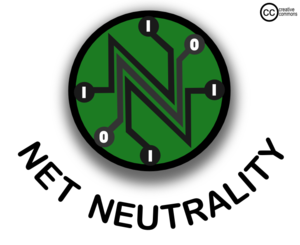If you haven’t been paying attention as to what’s been going on since June 12th when the Open Internet Rules from the FCC went into effect, you haven’t missed many things, but what has been going on has been extraordinarily interesting.
 As was anticipated, the ISPs and Telecom companies, and their interest groups, have filed several court cases with the Appellate Court in D.C. making several claims about the rules. Some of these court cases are attempting to raise concerns over the fact that the FCC overstepped its authority when they reclassified broadband internet services as Title II. Others are stipulating that there are specific points in the rules that aren’t legal. My personal favorite is still the case that says these rules infringe on the First Amendment rights of the ISPs in order to restrict content that they don’t want crossing their networks – essentially saying that these rules infringe upon their First Amendment rights to potentially infringe upon other people’s First Amendment rights. Keep in mind that this is the same Appellate Court that set us down this path back in January 2014 when they ruled in favor of Verizon over the last attempt the FCC made to ensure that data on the Internet was protected, so the possibilities of what could come next once the oral arguments begin on December 4th are wide open.
As was anticipated, the ISPs and Telecom companies, and their interest groups, have filed several court cases with the Appellate Court in D.C. making several claims about the rules. Some of these court cases are attempting to raise concerns over the fact that the FCC overstepped its authority when they reclassified broadband internet services as Title II. Others are stipulating that there are specific points in the rules that aren’t legal. My personal favorite is still the case that says these rules infringe on the First Amendment rights of the ISPs in order to restrict content that they don’t want crossing their networks – essentially saying that these rules infringe upon their First Amendment rights to potentially infringe upon other people’s First Amendment rights. Keep in mind that this is the same Appellate Court that set us down this path back in January 2014 when they ruled in favor of Verizon over the last attempt the FCC made to ensure that data on the Internet was protected, so the possibilities of what could come next once the oral arguments begin on December 4th are wide open.
With the cases against the rules out in the open, it was only a matter of time before those that want to see these rules put forth by the FCC held up in court started filing their briefs showing their reasoned and impassioned support. In the last few weeks I have read three such amicus briefs; one that is open for public signatories, another filed by an advocacy agency along with a few companies that exist because of the protections of an open Internet, and the third signed by several members of the United States Senate and House of Representatives.
In reading through these documents that have been filed as a part of this case I have found that the representation of who stands on both sides of the argument are focusing on the ways the Internet is being used from the stand point of protecting the consumers and attempting to ensure that the ISPs will not be allowed to disrupt potential innovation for the future startup organizations that are or will be using the Internet as their primary means to reach their customers. There’s a valid argument to be made in the brief from Engine and the associated technology businesses when they focus their argument on tearing down the ISPs stance that these rules will stifle innovation. Their statement focuses on the idea that it isn’t the ISPs that are the true innovators but rather the technology companies and edge providers that are doing the innovating while using the ISPs solely to reach customers by the use of the ISPs; thus, attempting to draw the comparison between the Internet and the other utilities that are accepted as utilities.
The brief filed on behalf of all the users of the Internet draws at the heart strings by addressing the value and the inherent presence that internet activity has in the lives of all those using it on a daily basis. They put together a rather extensive list of the things that the Internet has become essential for in modern society. My personal favorite drastic overreach in that list that I can’t wait to be heard read aloud in a court of law is that the Internet is essential to finding love and maintaining relationships.
The third brief in the reading list, the one signed by members of the United States Congress, carries a fair amount of weight, not just because of the congressional signatories, but also because many of those same individuals also signed the Telecommunications Act of 1996 which is what gave the FCC the power to interpret and manage the decisions over the Internet as it evolved. The focus of the brief is countering the case for the ISPs that the FCC did not have the rights or ability to reclassify broadband internet as a Title II service by demonstrating that the ability was granted to them by the Telecommunications Act of 1996. That argument is strong and extremely direct. It is later in the brief that the argument seems to get lost in the fold as they attempt to drawn the delineation between the role of internet service provider and that of those that provide services that use the Internet, specifically focusing on third party providers of DNS (Domain Name Services) and CDN (Content Delivery Networks). The major issue that I find with this argument is the fact that CDNs are explicitly defined as something that isn’t protected under the Open Internet Rules, so I’m uncertain how this portion of the brief will actually help the case.
I have no doubt that the briefs will continue to file in as we get closer to the oral arguments in December and I will my best to continue to provide general information about what they say and on whose behalf they’re being filed. As a side note, if anyone knows a communications lawyer that might be interested in working pro bono, I would very much like to speak to them to add my own brief to the filings.
If you would like to read the briefs for yourself, you can find them here, here, and here.


